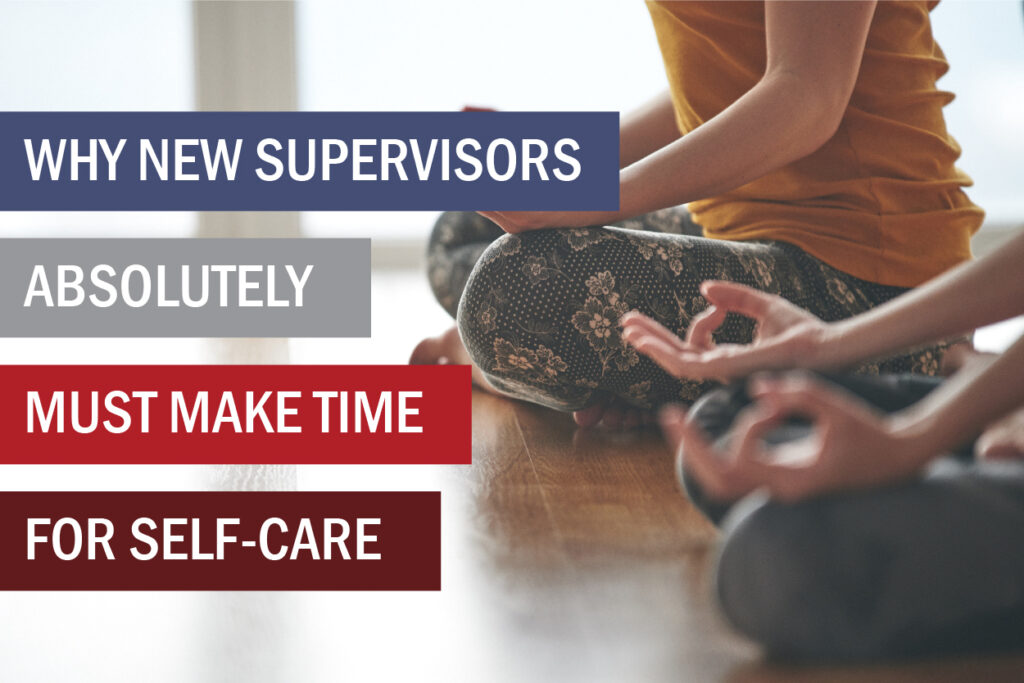Guest post by Justin Bennett
When you’re a supervisor, your decisions have a far-reaching impact, affecting not just you, but also the people around you. It’s a weighty – and stressful – responsibility you shoulder. It’s the kind of responsibility that keeps you up at night and wears you down slowly (if you let it).
The only way you’re going to sustain yourself long-term in such a demanding role (hey, what if they promote you again?) is by prioritizing self-care! Self-care is caring about your wellbeing, loving yourself, and taking concrete steps to maintain your health. If you take care of yourself properly, you will have the bandwidth to do your job well as well as manage your people. You will set a great example for your coworkers, and promote a healthier, happier culture at your company.
Bud to Boss takes a quick look at what stress can do to your body in this mini-guide. We also offer advice on how you can counter it with self-care:
Stress takes a heavy toll on your joints and muscles
According to the Cleveland Clinic, stress does a number on your joints and muscles. When you’re under stress, your muscles bunch up, leading to pain and soreness. Pain spasms are common, more extreme, reactions. Stress lowers your threshold for pain and can even trigger symptoms of fibromyalgia, arthritis, and similar conditions.
Besides body pain, stress can cause mental and physical imbalances. While some level of stress is unavoidable (and even a good thing), it needs to be actively managed lest it pushes you off track.
Freeing up time for self-care
Finding time for self-care can be a challenge when you’re a leader, but it’s by no means impossible.
- Learn time-management tricks: Scheduling, prioritization, doing one thing at a time, and similar time management tricks allow you to get more done in less time.
- Delegate or hire services: Smart leaders know how to delegate – or hire service providers for important tasks.
- Setting boundaries: You must avoid biting off more than you can chew. Set your boundaries with people clearly about what you can and can’t do.
Tips for managing stress
You aren’t born knowing how to manage stress – you have to pick up and actively hone the skill. Here are some pointers from the pros:
- Know your trigger points: Everyone experiences stress differently, for different reasons. You may be especially stressed by deadlines or performance reviews, for instance. Identifying your triggers is a necessary first step in learning how to manage them.
- Getting more sleep: Sleep has a way of calming your mind down and energizing your body. Getting an extra hour or two of sleep can work wonders for your stress levels.
- Going to the gym or working out at home: Exercising releases many feel-good chemicals in your body and boosts your health. It also helps your body release the tension it’s holding on to and makes it easier for you to sleep at night.
- Relaxation techniques: Learning relaxation techniques can help you get back into balance faster. Some suggestions are reading a book, eating chocolate, meditating, and going to your emotional safe space in your mind.
- Deep breathing: Last, but not least, is deep breathing. A good, measured breath allows you to center yourself and feel calmer and more relaxed.
Conclusion
Don’t make the mistake of being negligent with your health. As the saying goes, if you don’t make time for your wellness, you’ll be forced to make time for your illness. As a leader figure, you’re setting the tone for your company through your example. You must make it a good one for your sake and everyone else’s.
About the author:
Justin Bennett is an author and the creator of Healthy Fit, which collects valuable fitness resources from across the web.


0 comments